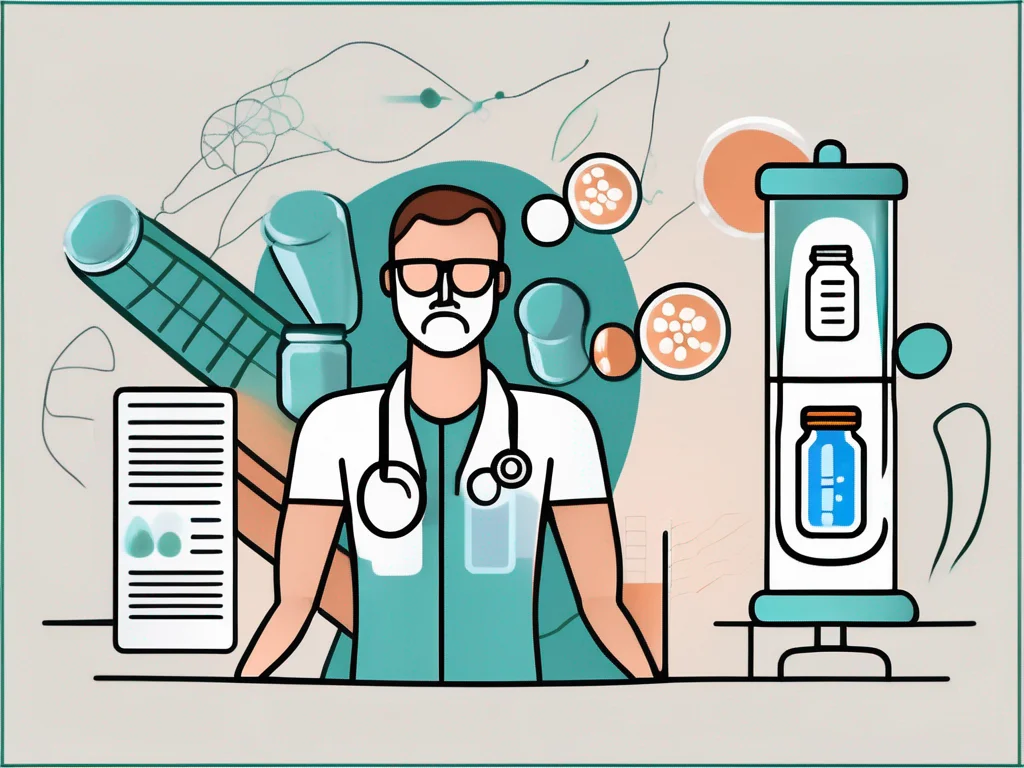Aceclofenac and Paracetamol tablets are widely used for managing pain and inflammation. This powerful combination of a nonsteroidal anti-inflammatory drug (NSAID) and an analgesic offers effective relief for conditions like arthritis, musculoskeletal disorders, and more. However, proper use requires understanding their benefits, dosage, side effects, and precautions. Consulting a healthcare professional is essential for safe and effective treatment. In this blog, we’ll answer key questions about Aceclofenac and Paracetamol, including their uses, administration, and potential risks, in a concise question-and-answer format.
What Are Aceclofenac and Paracetamol Tablets?
Q: What is the composition of Aceclofenac and Paracetamol tablets?
Aceclofenac is an NSAID that reduces pain and inflammation by inhibiting prostaglandin production, while Paracetamol, an analgesic, targets pain centrally. Together, they provide synergistic relief for various painful conditions.
Q: How do Aceclofenac and Paracetamol work together?
Aceclofenac targets inflammation at the injury site by inhibiting the COX-2 enzyme, while Paracetamol acts on the central nervous system to relieve pain. This dual mechanism ensures comprehensive pain and swelling management.
Q: Why is this combination preferred for pain management?
The combination enhances pain relief while allowing lower doses of each drug, reducing the risk of side effects. It’s effective for mild to moderate pain, particularly in chronic conditions like arthritis.
What Are the Uses of Aceclofenac and Paracetamol Tablets?
Q: What conditions are treated with Aceclofenac and Paracetamol?
These tablets are indicated for:
- Osteoarthritis: Relieves joint pain and improves mobility.
- Rheumatoid arthritis: Reduces joint pain, swelling, and stiffness.
- Musculoskeletal disorders: Manages pain from sprains, strains, or sports injuries.
Q: Are there off-label uses for these tablets?
Yes, healthcare professionals may prescribe them for dental pain, postoperative pain, or acute gout attacks. However, off-label use should only be pursued under medical supervision to ensure safety.
Q: How do these tablets relieve pain and inflammation?
By reducing prostaglandin levels, Aceclofenac and Paracetamol alleviate pain and swelling, addressing both the symptoms and underlying inflammation.
What Is the Correct Dosage and Administration?
Q: How is the dosage of Aceclofenac and Paracetamol determined?
Dosage depends on factors like the patient’s age, weight, pain severity, and medical history. A healthcare professional tailors the dose to minimize risks and optimize results.
Q: How should these tablets be taken?
Take the tablets orally with water, with or without food. Swallow them whole, avoiding crushing or chewing, to ensure proper absorption. Stay hydrated to support kidney function.
Q: What precautions should be taken during treatment?
Follow the prescribed dose and duration to avoid side effects like gastrointestinal issues or kidney damage. Store tablets in a cool, dry place away from sunlight.
What Are the Side Effects of Aceclofenac and Paracetamol?
Q: What are common side effects of these tablets?
Common side effects include:
- Gastrointestinal issues (nausea, abdominal pain, indigestion).
- Headache or dizziness.
- Allergic reactions (skin rashes, itching).
Consult a doctor if these persist or worsen.
Q: Are there serious risks associated with these tablets?
Long-term or high-dose use may lead to gastrointestinal bleeding, liver damage, or kidney issues. Patients with pre-existing conditions like ulcers or liver disease require close monitoring.
Q: Who should avoid Aceclofenac and Paracetamol?
Patients with a history of gastrointestinal ulcers, kidney or liver disease, or drug allergies should consult a doctor before use. Always disclose medical history to your healthcare provider.
What Drug Interactions Should You Be Aware Of?
Q: Can Aceclofenac and Paracetamol interact with other medications?
Yes, potential interactions include:
- Anticoagulants: Increased bleeding risk.
- Diuretics: May cause fluid retention or edema.
- Antihypertensives: Reduced effectiveness of blood pressure medications.
Q: How can harmful drug interactions be avoided?
Inform your healthcare provider about all medications, including prescription, over-the-counter, and supplements. They may adjust your treatment plan or recommend alternatives.
Q: Why is it important to monitor drug interactions?
Interactions can reduce the effectiveness of medications or increase the risk of side effects, potentially leading to serious health complications.
When Should You Use Aceclofenac and Paracetamol Tablets?
Q: When are these tablets most effective?
Use them when pain or inflammation significantly impacts daily activities, such as in arthritis or injury-related discomfort. Follow your doctor’s guidance on duration and frequency.
Q: Can these tablets be used for long-term pain management?
They are typically prescribed for short-term use to minimize risks. Long-term use requires regular monitoring by a healthcare professional to prevent adverse effects.
Q: When should you avoid self-medicating with these tablets?
Avoid self-medication, especially for unapproved uses or chronic conditions, as improper use can lead to serious side effects. Always consult a doctor first.
Why Is Consulting a Healthcare Professional Essential?
Q: Why should you consult a doctor before using Aceclofenac and Paracetamol?
A healthcare professional evaluates your medical history, current medications, and condition to provide personalized dosage and safety recommendations, minimizing risks.
Q: How does a doctor ensure safe use of these tablets?
They consider factors like renal and hepatic function, allergies, and concomitant medications to tailor treatment and monitor for potential complications.
Q: What should you discuss with your healthcare provider?
Share details about your medical history, current medications, allergies, and symptoms to help your doctor make informed treatment decisions.
Conclusion
Aceclofenac and Paracetamol tablets are an effective solution for managing pain and inflammation in conditions like osteoarthritis, rheumatoid arthritis, and musculoskeletal disorders. Their synergistic action provides comprehensive relief, but proper use is critical to avoid side effects and drug interactions. By understanding the correct dosage, administration guidelines, and potential risks, patients can maximize the benefits of this medication. Most importantly, consulting a healthcare professional ensures safe and personalized treatment, helping you achieve better pain relief and an improved quality of life.



